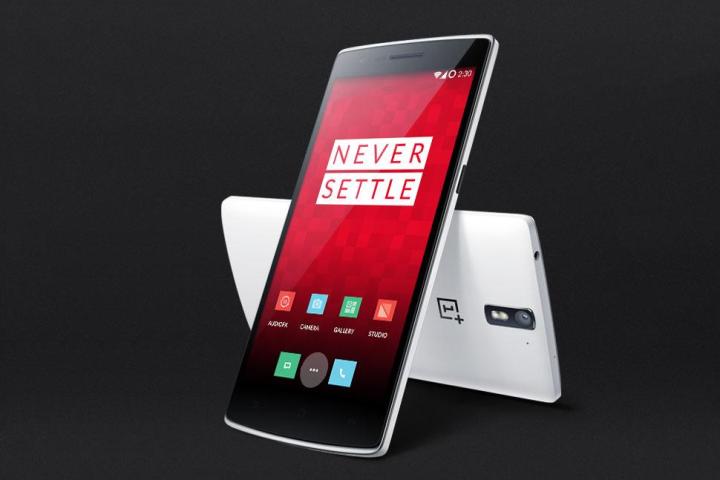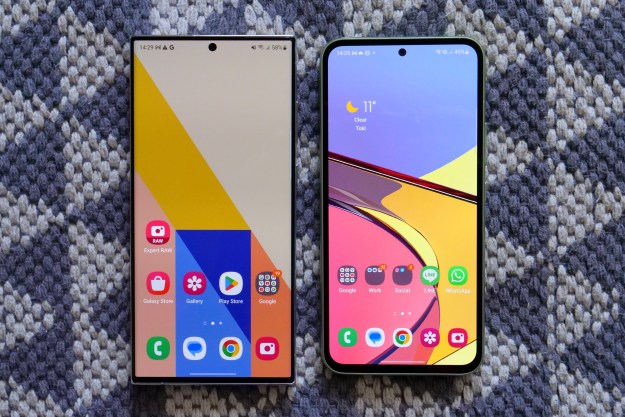
The way things are, it’s next to impossible for a new mobile OS to round up a meaningful crowd of users — outside the dedicated ones who just love to support an underdog — but it’s very tough to get people to leave a working, stable platform to join a risky new one. As much as smaller companies (and even Microsoft) try, most people just buy an iPhone or Android.
For years, crystal-ball-rubbing analysts have told us that there is room for a third major mobile OS. So where is it? Microsoft hasn’t cracked it with Windows Phone, BlackBerry had its day many years ago, and Tizen … well, you probably don’t know what Tizen is. So, what’s the name of the latest would-be challenger to Google and Apple’s stranglehold on the mobile industry?
In true diabolical fashion, the only thing that might challenge Android and Apple is …
Plucking Google out of Android
If you’re confused, let me explain. It’s not Android as you and I know it. It’s not even
For years, crystal-ball-rubbing analysts have told us that there is room for a third major mobile OS. So where is it?
More than a billion people love Android. But to truly adore
McMaster has very ambitious plans for the future. He recently said he wants to take Android away from Google, and make a version that’s more open than ever. He hopes this will attract startups working on features that may clash with some of Google’s own, especially those deeply embedded in the system, such as Google Now. They could adopt Cyanogen’s completely open
The strategy is the equivalent of Indy deciding not to shoot his scimitar-wielding attacker dead in Raiders of the Lost Ark, only to steal his sword and use that to do the job instead. The thing is, while using Android to combat
Google probably won’t care one little bit
Millions of phones are already for sale without Google apps; Chinese smartphone brand Xiaomi is the prime example. It sold just over 61 million smartphones last year, and they all run its own version of Android called MIUI. It says MIUI has more than 100 million users around the world.

Like Cyanogen’s ROM, MIUI is based on Android, but doesn’t come with any of the Google services as standard. Instead, there are several third-party app stores, along with Xiaomi’s own store, themes, and cloud options.
MIUI’s a big success, and a pleasure to use. However, Xiaomi phones are primarily sold where Google’s products aren’t really available in the first place, so a full-fledged Android OS isn’t needed. On the other hand, in North America, Europe, Canada, and many other countries, Google’s products are used extensively. Import a Xiaomi phone in this part of the world and there’s a solid chance it’ll come with Google’s services installed by the seller.

Xiaomi’s not alone in its efforts. There’s Oppo’s Color OS, Russia’s Yandex-equipped phones, and Amazon’s version of Android on the Fire phone and Fire HD tablets, to name just a few. Cyanogen’s version could be a serious challenger, and the company’s already making inroads into India (at the expense of its relationship with OnePlus).
However, for all their popularity, they haven’t made a dent in Google’s empire yet.
This isn’t the end, but it could be the beginning
Does that mean Cyanogen’s plans are doomed from the start? Maybe not. If a recent report by the Wall Street Journal is correct, one investor possibly waving a check worth $70 million in Cyanogen’s face is Microsoft. That’s some serious industry muscle, crucially backed up by a dogged commitment to succeed in mobile.
Amazon is keen to get in front of more smartphone customers, particularly after the Fire Phone failed.
Microsoft has had a go at doing this exact same thing already. The Nokia X program, which was Android powered by Bing, Skype, and Outlook, wasn’t as bad as everyone made out; but the big mistake was making it look and act completely differently to
If Microsoft provides its Bing cloud and email services, what about the all-important app store? There has been talk of Cyanogen creating its own, but more interestingly, Amazon has been linked with the company. Amazon’s Appstore may not be the same size as Google Play, but according to recent research, its catalog grew by 90 percent in 2014, and at the same time almost doubled the amount of developer support. Amazon is keen to get in front of more smartphone customers, particularly after the Fire Phone failed.
It’s worth knowing that Xiaomi made MIUI before it made smartphones. Cyanogen may have a similar future. After all, Microsoft is well-equipped to make mobile hardware. Could this be the birth of a Google-less, Microsoft-backed, Amazon Appstore-equipped, upstart OS inside an ex-Nokia design-team-produced smartphone? Maybe, and that’s pretty damn exciting.
Editors' Recommendations
- Google just released the first Android 15 beta. Here’s what’s new
- Google is launching a powerful new AI app for your Android phone
- Google is paying a $700 million fine, and you’re getting some of it
- Heads up — your Google account may get deleted next month
- Google is killing your passwords, and security experts are (mostly) happy


